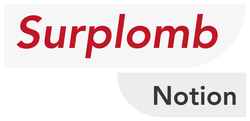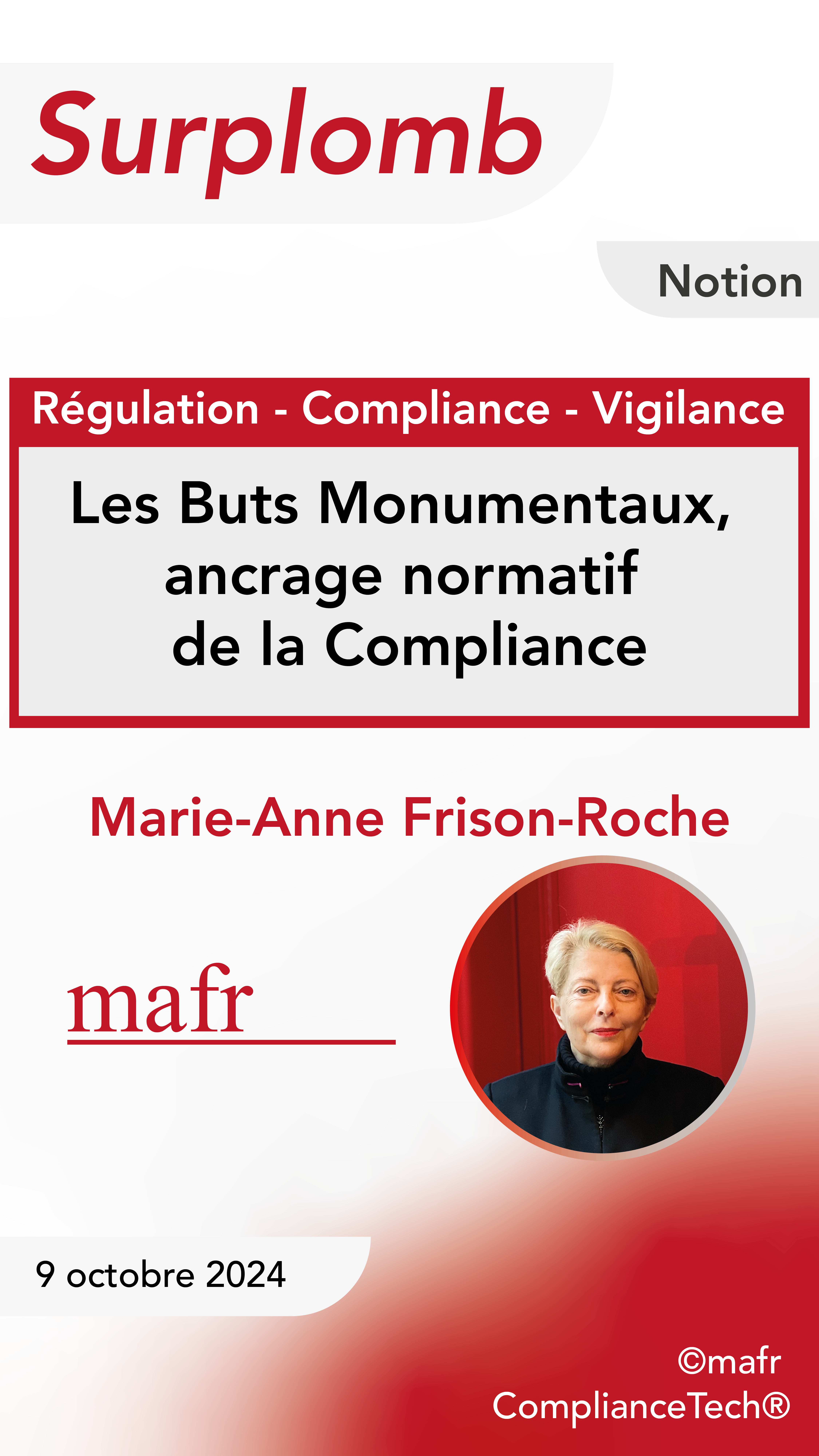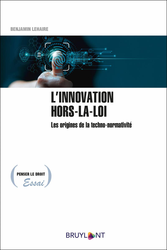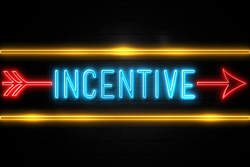
Oct. 9, 2024
MAFR TV : MAFR TV - Overhang

🌐suivre Marie-Anne Frison-Roche sur LinkedIn
🌐s'abonner à la Newsletter MAFR. Regulation, Compliance, Law
🌐s'abonner à la Newsletter Surplomb, par MAFR
____
► Référence complète : M.-A. Frison-Roche, "Les Buts Monumentaux, ancrage normatif de la Compliance", in série de vidéos Surplomb, 9 octobre 2024
____
🌐visionner sur LinkedIn cette vidéo de la série Surplomb
____
____
🎬visionner ci-dessous cette vidéo de la série Surplomb⤵️
____
Surplomp, par mafr
la série de vidéos dédiée à la Régulation, la Compliance et la Vigilance


Feb. 15, 2024
Thesaurus : Doctrine
► Référence complète : C. Prieto, "Les autorités administratives indépendantes et les sources du droit des affaires : l’exemple de l’Autorité de la concurrence", JCP E, n° 7-8, 15 février 2024, étude 1050, pp. 24-34
____
► Résumé de l'article (fait par l'auteure) : "Les autorités administratives indépendantes ont-elles leur place dans les sources du droit des affaires ? À partir de l’exemple de l’Autorité de la concurrence, une réponse est apportée à la lumière des avancées du Conseil d’État et de la Cour de cassation.".
____
🦉Cet article est accessible en texte intégral pour les personnes inscrites aux enseignements de la Professeure Marie-Anne Frison-Roche
________
Nov. 9, 2022
Thesaurus : Doctrine

► Référence complète : B. Lehaire, L'innovation hors-la-loi. Les origines de la techno-normativité, Bruylant, coll. "Penser le droit", 2022, 275 p.
____
____
📗lire le sommaire de l'ouvrage
____
📗lire la table des matières de l'ouvrage
____
► Résumé de l'ouvrage (fait par l'éditeur) : "Le droit est-il incapable d’encadrer l’innovation technologique ? L’idée est véhiculée ici et là comme un constat désarmant toute tentative de légiférer sur le "nouveau", en raison principalement du rythme incessant de l’innovation.
L’innovation est devenue un phénomène total entrainant des conséquences sociales réelles.
La principale est sans doute l’injonction faite à tous de l’accueillir, quand il ne s’agit pas de l’encourager. Tous les champs de la société sont concernés, y compris le champ juridique.
En droit, l’injonction normative tend à faire émerger ce qu’il convient désormais d’appeler une techno-normativité, entendue comme la potentielle normativité juridique de la technique.
Ce livre, unique sur le marché, propose une réflexion sur le rôle du droit dans notre société, à la fois comme vecteur de techno-normativité mais aussi comme solution ou limitation des effets négatifs de la technologie sur la société.
En partant des écrits les plus récents sur la philosophie, la sociologie et le monde numérique, l’ouvrage propose une lecture critique du rapport entre droit et innovation qui intéressera tant un public universitaire qu’un public de professionnels du numérique.".
________

Updated: Dec. 21, 2020 (Initial publication: Dec. 11, 2019)
Publications

This working document serves as the basis for two conference given in the symposium made under the direction of Lucien Rapp, Les incitations, outils de la Compliance ("Incitations: Compliance Tools").
Référence : Frison-Roche, M.-A., Compliance et Incitations : un couple à propulser, in Faculté de droit de l'Université Toulouse-Capitole, et Journal of Regulation & Compliance (JoRC),Les incitations, outils de la Compliance, 12 décembre 2019, Toulouse.
This Working Paper has been the basis for two conferences in the colloquium in Toulouse (France) under the scientific direction of Lucien Rapp, about Les incitations, outils de la Compliance ("Incitations, as Compliance Tools"), on December 12, 2019, the first one about The sanction as incitation and the second one about Incitations and Compliance Law (synthesis of this colloquium). sur le thème de la sanction comme incitation, la seconde en synthèse de ce colloque sur
After it has been the basis for the article, to be published in the books Les outils de la Compliance and Compliance Tools in the Series Régulations & Compliance.
Read a general presentation of this book.
____
Summary of this Working Paper: Compliance and Incentives appear at first glance to be totally opposite. Not only because sanctions are at the heart of Compliance and that sanction is associated with constraint while incentive is associated with non-constrained
To do this, the concept of “incentive Compliance” should be developed. This concept is not only appropriate, but it is necessary in a new conception of Sovereignty. For example for the digital Europe.
_________
Read the developments below.
Voir cette question analysée d’une façon autonome, Frison-Roche, M.A., Résoudre la contradiction entre « sanction » et « incitation » sous le feu du Droit de la Compliance, 2020.